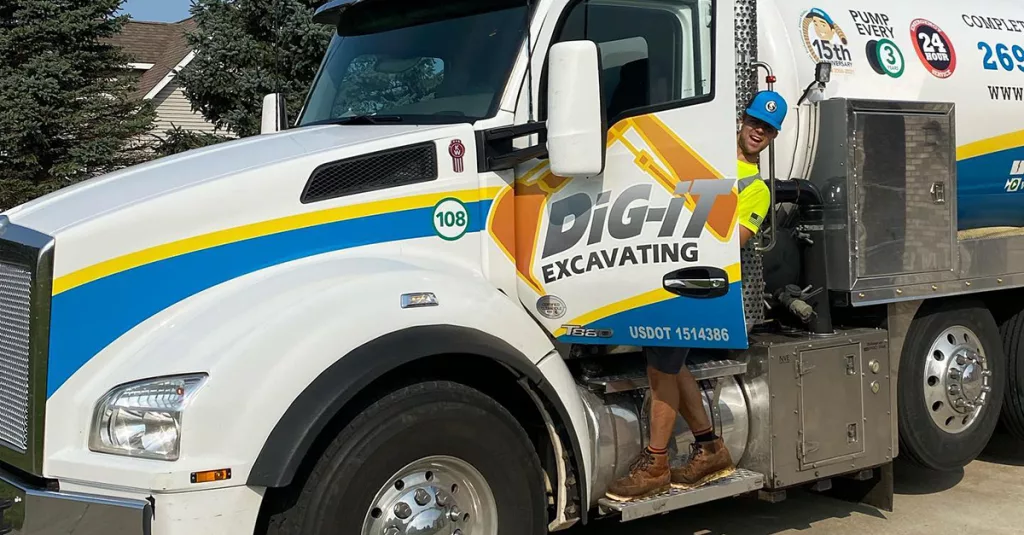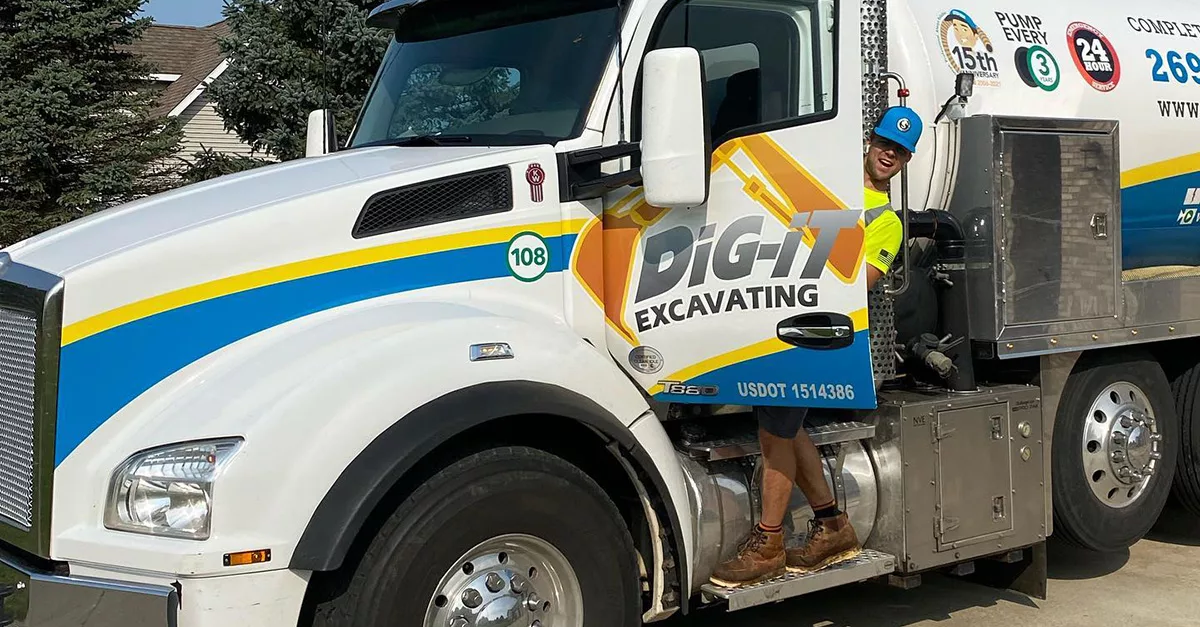

Why does the grass grow greener on the other side of the fence? Sometimes, it’s because there’s a problem with the underground septic system. Fortunately, there are companies that help maintain and fix septic systems, if necessary, so those systems don’t turn into problems that could affect your home comfort and your health.
Dervin Witmer is the owner of Dig-It Excavating, a business he started in 2005. One of his first jobs was to convert a neighborhood of lake houses from individual septic systems over to the municipal system. As he tells it, he rented a machine and used his own personal pickup truck to dig to the existing septic tanks, he’d hire someone for the pump out, and then he would dig in the new sewer connections.
Witmer soon realized that he could increase his own services by buying his own used vac truck to complete the sewer hookups. After completing the necessary licensing, he started providing regular septic service to other clients.
“We were born as an excavation company. But by the end of that year, it really became clear that the septic services – installing, maintaining, and fixing –could stand on their own. That’s how the Pump That Septic brand was born,” said Witmer.
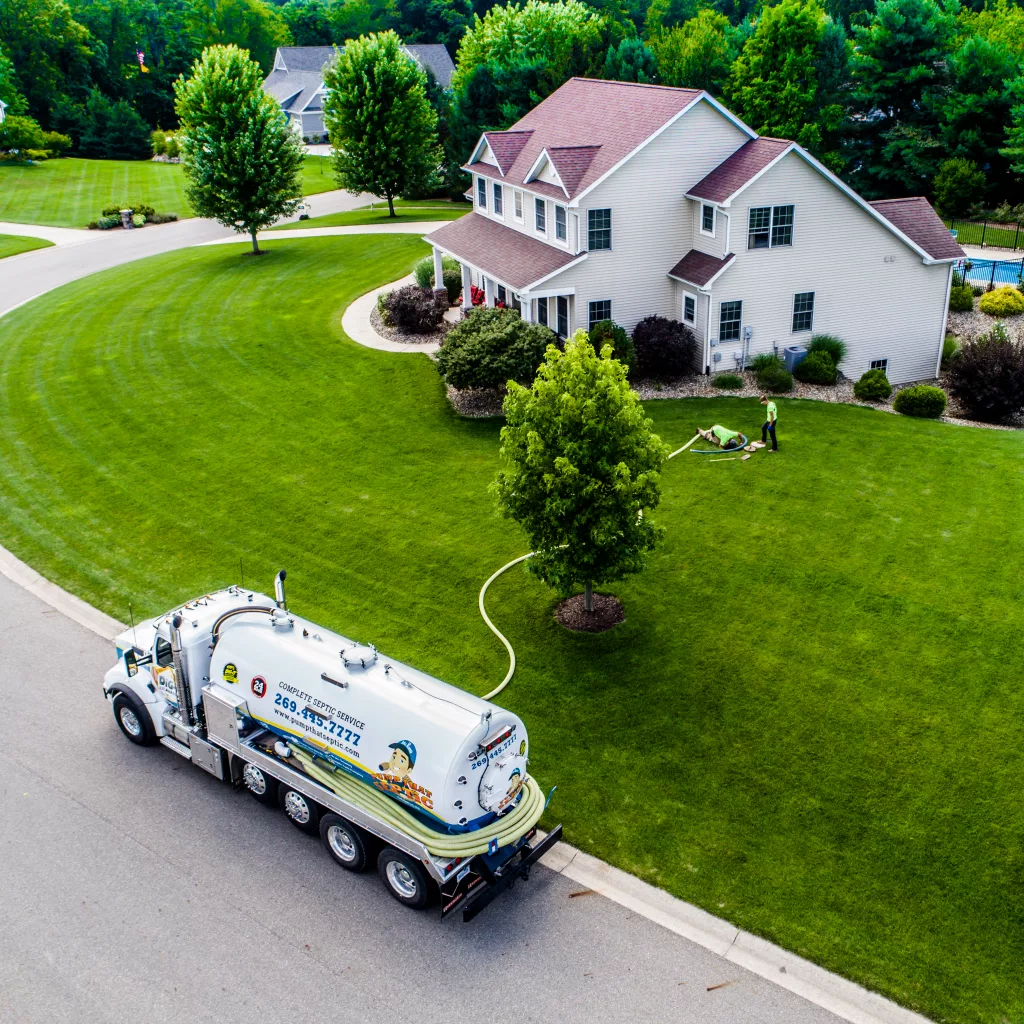
Pump That Septic is more than a marketing brand; it’s the septic service arm of Dig-It Excavating. It’s helping septic owners in Southwest Michigan and Northern Indiana learn more about how to maintain their systems through YouTube and other social media. He is excited to now be able to connect people in Michigan with low-cost, government-backed funding for major septic service projects.
“We do septic inspections, drain cleaning, upgrades or replacements of existing systems. We also install new systems in commercial and residential areas. We’ll do site work and municipal jobs, too. If the job is really big and major excavation is required, that’s when the other side of our company (Dig-It Excavating, Inc.) can help.”
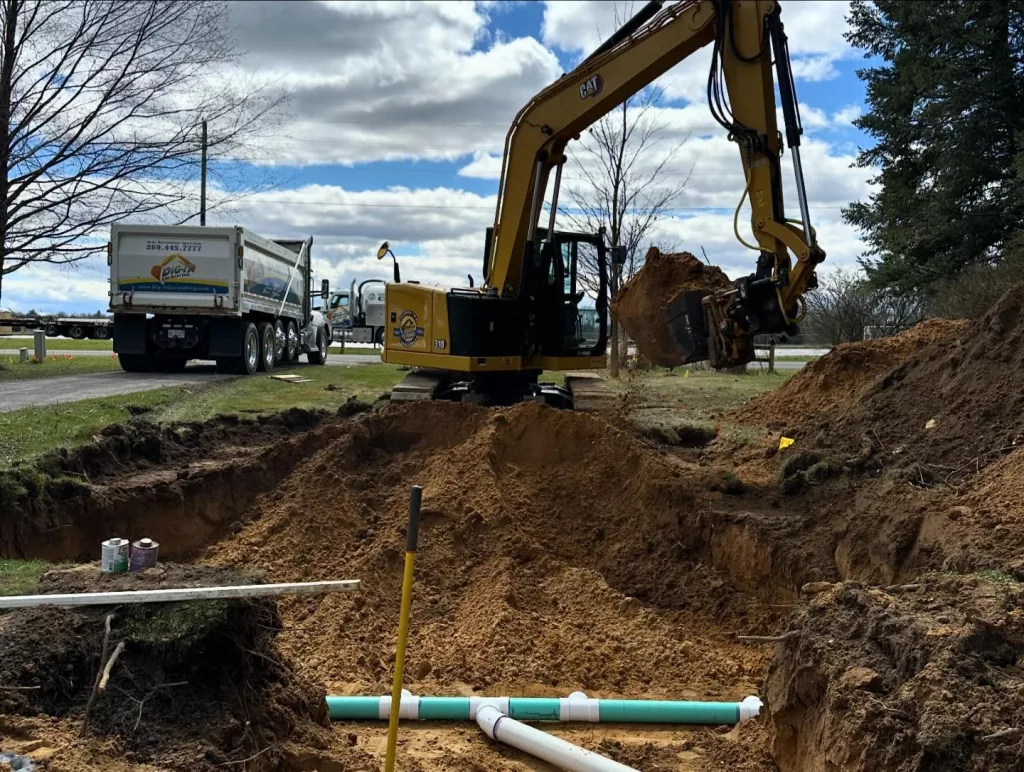
Witmer’s company is a family-owned business. Three of his children work full time at the business, so does his brother-in-law, and three other crew members. They serve seven counties in Southwest Michigan and two counties in Northern Indiana. Their jobs cover residential, commercial, and municipal projects.
A typical day for Witmer’s work crew is a daily morning meeting and then the teams head out to their appointments.
“We’re usually pumping tanks and doing multiple septic inspections every day. We’re also working on septic tank replacements or complete septic systems and getting products in to support that. Every time we send a crew out, they often come back with more leads because we are the first point of contact on the job and can determine if there is additional work needed to keep their systems functioning properly. We also try to make the process easy for the customer to get the additional work scheduled.”
UNDERSTANDING WHEN YOU HAVE A SEPTIC PROBLEM
Even though septic systems are among the most cost-effective household wastewater solutions for rural areas, Witmer says many people forget to do the required maintenance. He says systems need maintenance to sustain optimal functionality and avoid complete system failure.
Witmer recommends septic tank pumping every two to three years, depending on the size of the tank and how many people it typically supports.
Identifying a problem with a system isn’t always easy due to the fact that septic systems are a buried product. Some telltale signs are vibrant green grass in areas between the septic and the drain field (indicating a potential line break or saturation), a soggy drain field, or slow flushing from the toilet – even after a tank has been pumped.
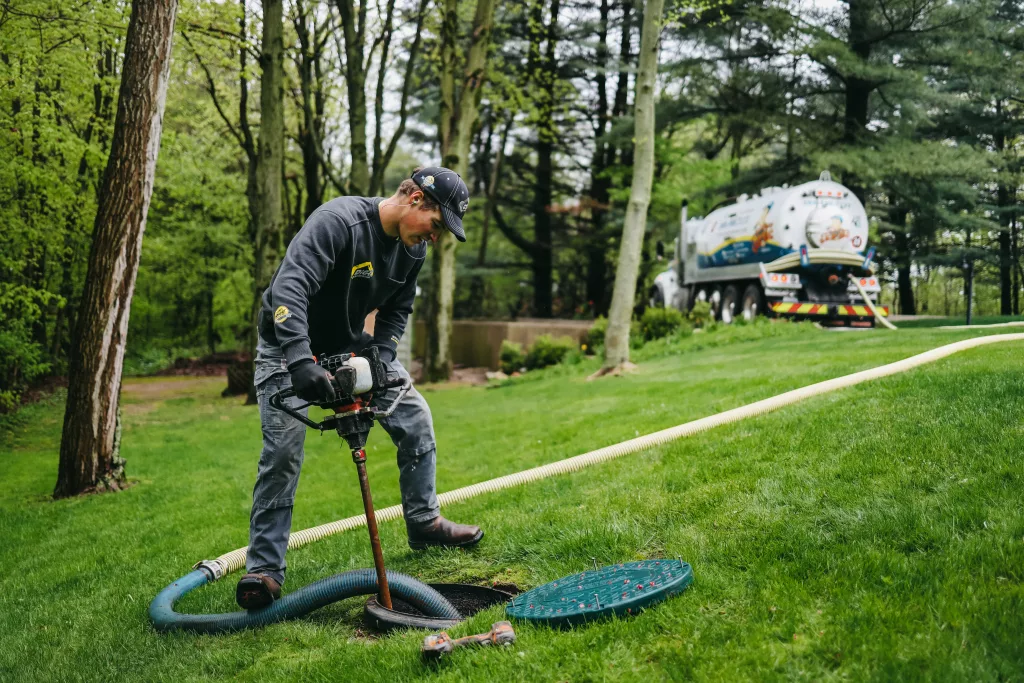
HELP AVAILABLE FOR MAJOR SEPTIC REPAIRS
If a system hasn’t been maintained by the current or previous owners, or is simply aging out of its functional lifespan, the cost of fixing or total replacement can be daunting. Understanding the health issues a failed septic system can cause, the State of Michigan Legislature has earmarked money to help qualified applicants replace a failed system.
The Michigan Department of Environment, Great Lakes, and Energy (EGLE) administers the Septic Replacement Loan Program and it’s designed to replace failing and near-failing septic systems. The program is divided into two tiers, with both income-based financing (Tier 1) and a market-based loan (Tier 2). Systems supported by the program must be evaluated, designed, and installed in accordance with EGLE’s Program Minimum Standards, and must be installed an Authorized Contractor. The loans are becoming available in April and May of 2024 and Dig-It Excavating, Inc. is an approved and authorized contractor in Southwest Michigan.
“This program is aimed at updating old infrastructure. Essentially, it’s a 10-year, low interest, or market-value loan program, which makes the projects very cost effective. We became involved because of our reputation and willingness to help test the pilot program in our area. We like it because no one wants old systems leaching into creeks and lakes. So, this is aimed at helping people who otherwise might not get their system fixed because of a perceived cost barrier.”
Witmer says checking to see if you’re qualified for the program is simple.
“You would call us and initially we pump your tank out because that’s the first point of relief. That provides a family with time to use their system without it backing up. If it’s determined that the system has failed and you don’t have the funds for replacement, you can access a simple online application to see if you qualify for one of the programs. Once that approval comes in, we work on permitting the project and providing the contract so we can schedule the work and go from there.”
Depending on which program an applicant qualifies for, the loan rate is either one percent over 10 years, or a market-rate loan over 10 years.
“If you think about cars, you pay them off in five years. A 10-year loan is a pretty decent way to afford investing in a new system,” said Witmer.
After the State returns all the paperwork, Witmer says they can put the system in over a couple of days.
A CULTURE OF PROFESSIONAL SERVICE
Witmer says he often reminds his team of the role they play in a community.
“I keep telling our crews we’re public health professionals. We want to leave the site clean. We want everyone to be healthy, and that’s the reason we’re out pumping tanks. We don’t want your water contaminated. We don’t want your pets contaminated. We don’t want the neighbor’s pond contaminated, or Lake Michigan. It’s all part of just keeping our world healthy and functioning. And we want to do it in a way that creates a good career for our employees, too.”
You can learn more about Pump That Septic and the common elements of a system at their website. www.pumpthatseptic.com
Dig-It Excavating
Ask for more information


